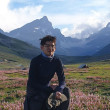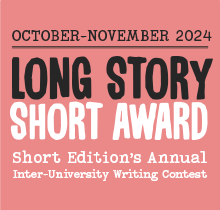It transpired in an instant—imperceptible to the senses but profound in consequence. One moment, the Earth revolved as it always had, immersed in the ceaseless tumult of human endeavour, each heartbeat synchronised with the relentless march of time. And then, without herald or spectacle, the world shifted; not with thunderous upheaval, but with the subtlety of a whisper carried on the gentlest of breezes. The incessant passage of time seemed to stretch and unravel, yielding to an unfamiliar tranquillity.
The first herald of this shift was the dawn itself. The sun, ordinarily precise in its ascent, seemed to tarry on the horizon, bathing the land in a luminescence so tender, so effulgent, that the very atmosphere appeared to shimmer with the promise of something ineffable. The sky, a canvas in perpetual flux, held its colours longer—celeste, crimson, rose, and violet, blended seamlessly, as though the soul of time itself had relinquished its grasp on the morning palette.
In this protracted dawn, the Earth exhaled. The breath it held through millennia of unyielding motion and strife released cathartically, and with it came a stillness suffusing every corner of the world. The earliest risers—farmers in their fields, accustomed to the exactitude of nature's cycle—were first to feel the Earth's unusual gaiety. Hands that tilled soil for generations stilled as the air around them grew soft. A once industrious wind, accustomed to sweeping through with brisk efficiency, lingered now, its touch languidly warm and almost contemplative. The birds, whose dawn chorus was a constant, sang slowed, altered melodies, evolving into a symphony of repose rather than urgency.
In the urban centres, where the pace of life was erstwhile governed by the precision of clocks, the transformation was more subtle, yet no less profound. The ceaseless ticking of time; the clamour of horns; the rush of feet; the ageless grind of ambition; softened. People, accustomed to navigating through this cacophony, found themselves inexplicably attuned to the gentle rhythm that had replaced it. The familiar pulse of urgency dissipated, replaced by a serene acceptance of the present. There was no rush, no insatiable hunger for the next moment. It was as though the future had been gently deferred, leaving only the fullness of now.
In the cities, this change manifested in myriad ways. Labourers, once shackled to the ticking of clocks and the demands of productivity, advanced with a newfound grace, each action imbued with care rather than haste. Conversations, formerly litanies of exchanges hurried along by deadlines and interruptions, now flowed like rivers; meandering, thoughtful, and meaningful. In a shared stillness, once hurried acquaintances became companions.
Amid this sheltered serenity, the world began to notice the delicate unravelling of time's dominion. No longer a strict arbiter of progress, time seemed to exhale alongside Earth, allowing each moment to expand and deepen. There now was no need for hurry, for the present had become boundless. The hours of the day extended, stretching out in golden increments that flowed like honey, rich and unhurried.
Even the children, eternally immersed in the magic of imagination, felt the slowing. The games they played—chasing shadows through winding streets, or climbing trees that seemed to whisper Nature's secrets—unfolded without the usual brevity imposed by the inevitable pull of time. The day seemed infinite, and they revelled in it, their laughter echoing in the still air like notes of music suspended in time.
In distant villages, where the pace of life had always been measured by the sun and seasons, the elders felt most acutely this shift. For them, time had been both a companion and adversary, its steady march a reminder of what they had enjoyed and what would inevitably come. But now, in this strange suspension, they stood taller. The weight of years fell, replaced by a lightness, an almost youthful exuberance that made them linger longer in the sunlight. The old woman who lived in the corner hut, whose garden had been her sanctuary, marvelled at the roses that bloomed wider than ever, their scent headier and petals softer. Memories of her late husband bloomed alongside the roses, a gentle presence in the stillness, as the lady reminisced with a sorrow turned sweet.
In forests deep and ancient, the trees whispered with a deafening silence, their leaves rustling in languages older than mankind itself. Rivers, once swift and purposeful in their course, now ambled, reflecting the idyllic sky in their mirrored surfaces. Even the oceans, vast and unknowable, moved with a serenity that had eluded them for aeons, their waves lapping at shores with the pulse of a heartbeat in lieu of the frenzied rhythm of a planet in motion.
In places formerly ravaged by conflict, the stillness became balm. Guns, once raised in fear and wrath, lowered. Soldiers, accustomed to the sharp tensions of battle, found themselves kneeling in the unravelling dust swirls, their hearts unburdened by the weight of tomorrow. Families, fractured by years of unspoken words, gathered around tables not out of obligation, but out of deep-seated desires for rapprochement. Long-stifled conversations flowed with the ease of forgiveness, the passage of time a threat no more to their reunion.
Humanity, for the briefest of moments, found a fleeting contentment in a world free from the constraints of time.
But within this perfect moment, there were hints that it would not last. A cloud, moving ever so slightly faster than it should. A shadow cast by the setting sun that stretched just a little too long. And as the day wore on, unnoticed at first, time began to assert itself once more. The clocks, though silent, still ticked in their unseen march. The wind, though gentle, began to stir. People, though slower in their steps, still moved toward the inevitable future, the unreachable salvation. And somewhere, deep within the collective heart, the faintest whisper: this was never meant to be.
When the first sign of the denouement appeared—a rustle of leaves with a faint chill in the air—no words were spoken. There was no alarm, no sudden fear. Only the quiet, unspoken understanding that the world would soon return to its old ways. And yet, even as the perfection faded, a trace of it lingered in the memories of those who had lived through it. They had seen, or thought they had seen, a glimpse of a world unbound by time, free from the burdens of striving and struggle.
But as the Earth resumed its familiar rhythm, a quiet truth settled into the bones of those who had dreamed of something more: that perhaps, this perfection had always been an illusion, a wish more than a reality, conjured not by the world, but by their own hearts. And while they had savoured the moment, they knew, in their deepest selves, that such moments were too rare, too fragile to be held onto for long.
The Earth would spin on, as it always had. Time would carry them forward, as it always would. And though the memory of that stillness would remain, it would serve not as a promise, but as a reminder—that the perfect world they had glimpsed was not real, and perhaps, could never be.
It was as if the entire world slumbered at the same moment, imagining the perfect demi-paradise, a magical utopian wonderland where all would find ataraxy.
But someday, we will wake up from our dreams.



